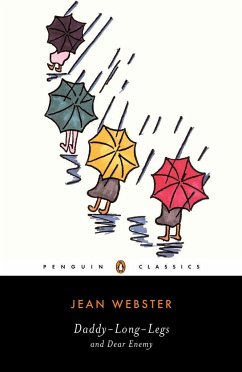
Bartleby the Scrivener
Versandkostenfrei!
Versandfertig in 1-2 Wochen
13,99 €
inkl. MwSt.
Weitere Ausgaben:

PAYBACK Punkte
7 °P sammeln!
Literary scholars have been analyzing Bartleby the Scrivener ever since Putnam's Monthly Magazine published the story in its November and December 1853 issues. And they psycho-analyze Melville the author as well, for he either purely imagined and created Bartleby-or maybe lifted him from a newspaper article he had read-or composited certain teachings of Jesus Christ into a Bartleby person-or symbolized his own emotional reaction to the departure of neighbor, mentor and dear friend Nathaniel Hawthorne, who had recently moved away. Theories have continued to proliferate in literary circles about...
Literary scholars have been analyzing Bartleby the Scrivener ever since Putnam's Monthly Magazine published the story in its November and December 1853 issues. And they psycho-analyze Melville the author as well, for he either purely imagined and created Bartleby-or maybe lifted him from a newspaper article he had read-or composited certain teachings of Jesus Christ into a Bartleby person-or symbolized his own emotional reaction to the departure of neighbor, mentor and dear friend Nathaniel Hawthorne, who had recently moved away. Theories have continued to proliferate in literary circles about the origin(s) and constitution of Bartleby, but none have risen above theory, leaving everyday readers free to reflect on the Bartleby puzzle and decide for ourselves just what this amazing character represents, or even, if we are so inclined, to research Melville and guess how Bartleby came to be. Here are two clues. First, the story originally came with- and sometimes still carries-a subtitle: A Story of Wall Street. Second, when Herman Melville went to work on Bartleby, he was in a bad state of mind. Despite enjoying early success as an author, his masterpiece, Moby Dick, had flopped in 1851. Many critics, mainly American, did not like it, and not many readers anywhere were buying it. His follow- up novel, Pierre, fared even worse in both ways. Melville's future as a financially secure writer was thus in jeopardy, and family members were pressuring him to do better or find a new occupation. Melville was a highly skilled, diligent author who knew the degree of his talent and the huge amount of effort he expended in bringing his novels to completion. With the rejection of his latest work, growing doubts about his talent, and pressure to do better financially, Melville probably developed a huge distaste for the business of publishing, or even the business of business, a distaste perhaps signaled by the Wall Street setting and the story's subtitle. Was the skilled and diligent worker Bartleby standing in for Melville when he rebuffed his Wall Street employer who was telling him to check over his work? Perhaps Melville's Bartleby was simply rebelling against the insensibility of the marketplace, a money-culture oblivious to all except accumulating anything and everything in the easiest way possible. Why wouldn't Melville, a hard-working genius who had just created a masterpiece that was rejected in the marketplace, respond by creating a character who snubs Wall Street, a symbol of the culture that had discounted and rejected him? Seems as possible as anything else.















